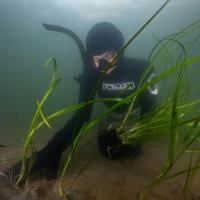Researchers have uncovered the world’s oldest seagrass in Finland, with a groundbreaking new method determining its age to be 1,403 years old.
Using a genetic clock to measure mutations in seagrass over time, scientists were able to pinpoint the age of the original ancestor plant with unprecedented precision.
Co-author of the study, Thorsten Reusch, stated, “This is the first really reliable clone age estimate.”
Published in Nature Ecology and Evolution in June, the study conducted at 20 sites worldwide identified a 1,403-year-old eelgrass meadow in the Baltic Sea off the coast of Finland as the oldest marine plant known.
The new method provides insights into ecosystem functionality and aging processes in the natural world, shedding light on how plants avoid aging symptoms over millennia.
Reusch expressed optimism about finding even older clones, potentially dating back 10,000 years.
Eelgrass, reproducing through flowers, seeds, and rhizomes, plays a vital role in marine ecosystems by supporting other organisms and sequestering carbon dioxide.
Despite its age and resilience, eelgrass faces threats in the Baltic Sea from nutrient pollution and rising sea temperatures due to climate change. Approximately 60% of eelgrass in the western Baltic Sea has been lost in the past century.
Reusch emphasized the value of eelgrass as a crucial ecosystem in the Baltic Sea, bordered by eight countries and facing conservation challenges.




